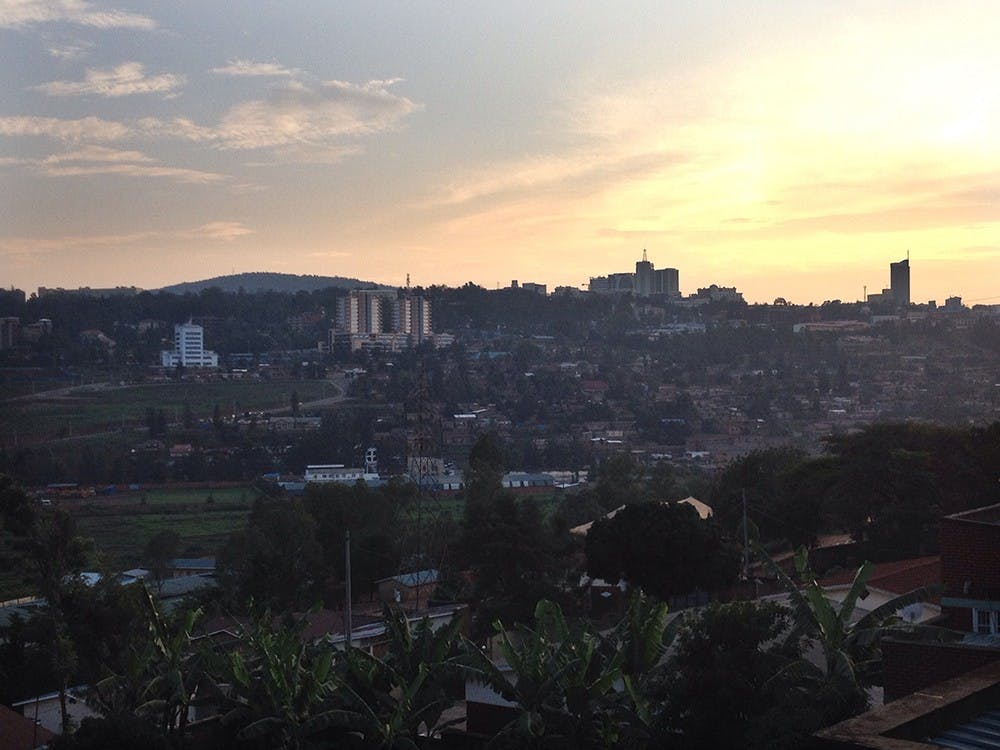Living in Kigali is like ?living in any big city.
There are bustling people, traffic, lots of shopping, good food and touristy sites to see.
It’s like any other big city, except when it’s not.
Every city has its own flavor, its own vibe. If Kigali, Rwanda, was a food, I would characterize it as passion fruit with a few potatoes and maybe some rice. And beans.
But maybe its because that’s practically all I eat here.
In the United States, passion fruit is that flavor in a lollipop or Capri Sun, but the one you’ve never actually had in its natural form.
Here, I can attest that passion fruit is indeed of a vine species, not just a synthetic factory-produced ?flavor.
And it’s good. I can eat several in one sitting.
Kigali, the capital of Rwanda, is different from other parts of the country and probably different from your average, stereotypical image of Africa.
The streets are cleaner than any American city I’ve seen, with barely a scrap of trash in sight, even in the busiest areas.
Interestingly, though, I have yet to see a public trashcan or really any trash can at all. It’s unusual to have wastebaskets in homes as well.
Which leads me to wonder: are Rwandans magical people who don’t accumulate trash? Or are they merely very good at hiding it?
The main roads are good, well-paved and flanked with hedges and plants.
Palm trees line the roads. Flowers bloom nearly year round, too, which is an extra plus that comes with warm, but mild, weather.
The average maximum temperature while I’m here is about 82 degrees.
As a result, everything is green and lush. Neat hedges are common but so are a variety of other plants.
Although the practical construction of roads and modern buildings in cities usually sacrifices color, Kigali still blooms.
If you’re not paying attention when riding around the city in a car, bus or moto, it’s easy to just stare straight ahead at the pavement in front of you.
Looking out the window is one of the best ways to experience the city.
Rwanda is known as the “land of one thousand hills,” and I’m starting to think that’s an underestimation.
In the gap between buildings and small shops, the many hills of Kigali peek through. No matter where you go, there’s always a view.
The side of the road drops off into a sea of hills, each one rolling onto the next until they turn into misty figures hidden in the distance.
The hills are dotted with tin roofs, greenery, churches and schools, signs of life.
Every Sunday, I can hear singing and children playing outside from miles all around me.
It’s difficult to feel isolated in Kigali. There’s noise and color and excitement all around.
When the sun sets, it throws a dim orange light over the city, which only sleeps for a minute.
Now that I think of it, if Kigali were a food, it would be a passion fruit.
It’s exotic and tart, with a little bit of crunch, and is unlike anything you will find in the U.S.





